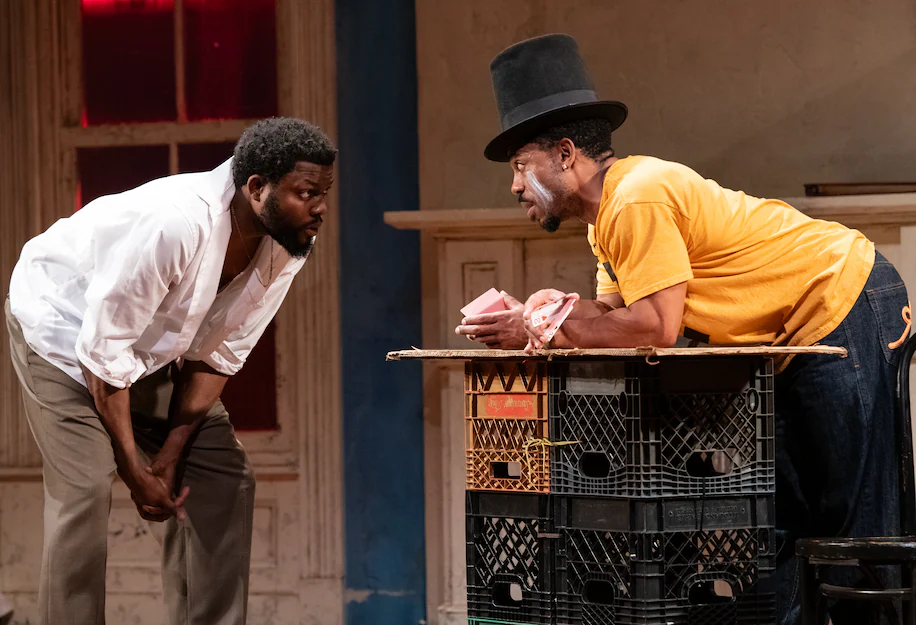“Topdog/Underdog” EXTENDED through June 30, 2024 at Round House Theatre, 4545 East-West Highway Bethesda, MD 20814. For more information and to purchase tickets, go online.
Review by Katie Barnetton for MD Theatre Guide
“Are you watching closely? Go see ‘Topdog/Underdog’ at Round House Theatre, and you better. From Chekhov’s gun to sleight of hand, the fates and actions of the characters turn on a dime—make that a card. Written by award-winning playwright Suzan-Lori Parks and directed by Jamil Jude, ‘Topdog/Underdog’ (2002 Pulitzer Prize Winner and 2023 Tony Award for Best Revival of a Play) lives on the edge of a knife while questioning every aspect of society, history, and the individual.”
Review by John Stoltenberg for DC Theatre Arts
“Acclaimed as a modern classic when it premiered in 2001, the cuttingly calibrated script has lost none of its edge, and its story still transfixes. As director Jamil Jude’s electrifying production makes manifest, Parks’ play may never have been more gut-busting comedic nor more gut-punching tragic.”
Review Chris Klimek for the Washington Post
“Director Jamil Jude’s confident Round House Theatre revival, anchored by nimble and entrancing performances from Ro Boddie and Yao Dogbe as Lincoln and Booth, respectively, harvests every note of humor and pathos from Parks’s immortal script.”

